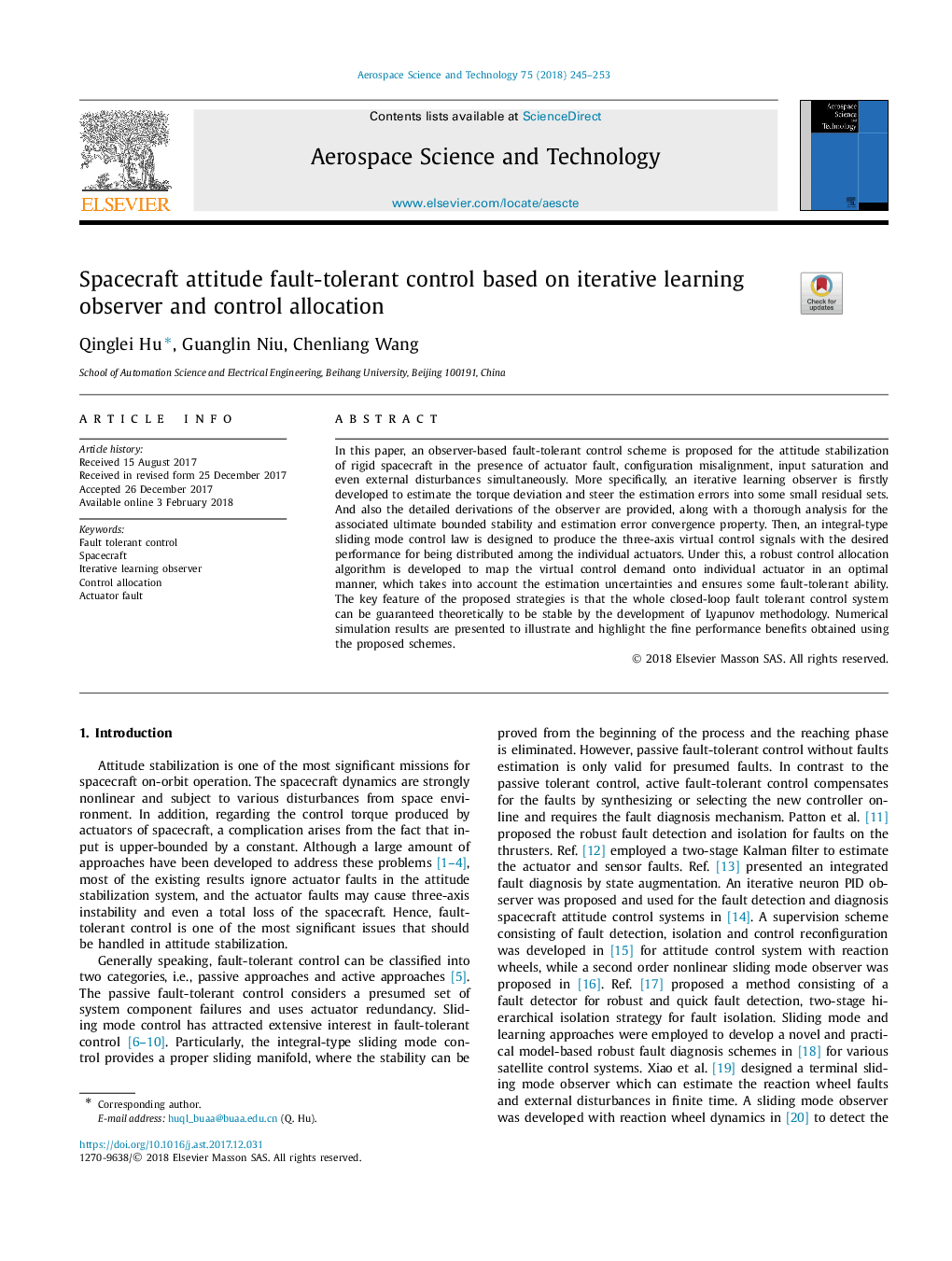ترجمه فارسی عنوان مقاله
کنترل تقارن ناسازگاری فضاپیمایی بر اساس مشاهدات تکراری یادگیری و تخصیص کنترل
عنوان انگلیسی
Spacecraft attitude fault-tolerant control based on iterative learning observer and control allocation
| کد مقاله | سال انتشار | تعداد صفحات مقاله انگلیسی |
|---|---|---|
| 105757 | 2018 | 9 صفحه PDF |
منبع

Publisher : Elsevier - Science Direct (الزویر - ساینس دایرکت)
Journal : Aerospace Science and Technology, Volume 75, April 2018, Pages 245-253
ترجمه کلمات کلیدی
کنترل ضعف سفینه فضایی ناظر یادگیری حرامزاده، تخصیص کنترل خطای محرک،
کلمات کلیدی انگلیسی
Fault tolerant control; Spacecraft; Iterative learning observer; Control allocation; Actuator fault;
ترجمه چکیده
در این مقاله، یک سیستم کنترل مقاوم بر پایه مبتنی بر مشاهدات برای تثبیت نگرش فضاپیمای سفت و محکم در حضور خطای محرک، ناهماهنگی پیکربندی، اشباع ورودی و حتی اختلالات خارجی به طور همزمان پیشنهاد شده است. به طور خاص، یک ناظر یادگیری تکراری در ابتدا برای تخمین انحراف گشتاور طراحی شده و خطاهای تخمین را به برخی از مجموعه های باقی مانده کوچک هدایت می کند. همچنین، مشتقات دقیق ناظر، همراه با یک تحلیل کامل برای ثبات محدود شده نهایی و ویژگی همگرایی خطای برآورد ارائه شده است. سپس یک قانون کنترل حالت کشویی یکپارچه طراحی شده است تا سیگنال های کنترل مجازی سه محوری را با عملکرد مطلوب برای توزیع در میان محرک های فردی تولید کند. در زیر این الگوریتم تخصیص کنترل قوی برای تهیه تقاضای کنترل مجازی بر روی یک محرک به صورت مطلوب به کار گرفته شده است که با توجه به عدم اطمینان برآورد شده و برخی از توانایی های تحمل پذیری را تضمین می کند. ویژگی کلیدی استراتژی های پیشنهادی این است که کل سیستم کنترل تحمل خطا در حلقه بسته می تواند به لحاظ نظری تضمین شود که با توسعه روش های لیاپانوف پایدار باشد. نتایج شبیه سازی عددی ارائه شده برای نشان دادن و برجسته کردن مزایای عملکرد خوب به دست آمده با استفاده از طرح های پیشنهادی است.

